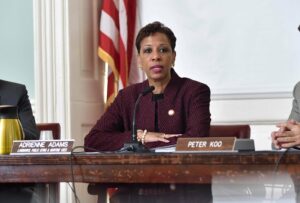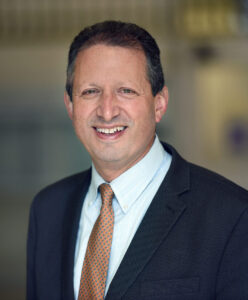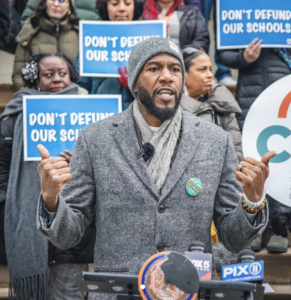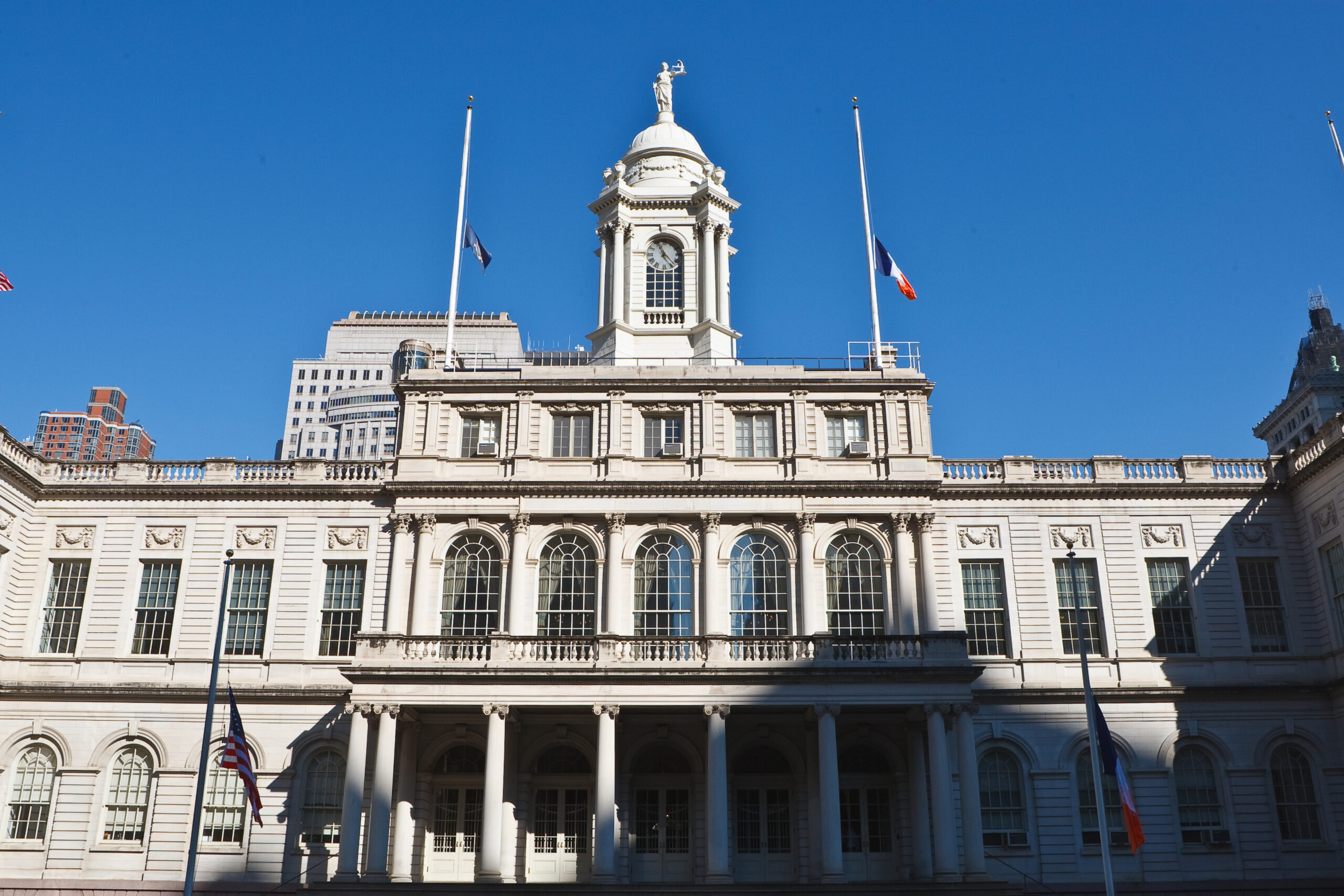Elected and Appointed Representatives in New York City
Local representatives are elected to serve and advocate for the interests of their constituents (people who live in their districts). That means YOU!
In New York City, there are elected officials that serve the entire city (Mayor, Comptroller, Public Advocate), those that serve your borough (Borough Presidents, District Attorneys), and those that serve your specific district (City Council Members) in each of the five boroughs of New York City: Manhattan, Brooklyn, The Bronx, Staten Island and Queens. Following are the different types of representatives in New York City and their responsibilities to you!
The Mayor
The current Mayor of New York City is Eric Adams. His term ends in 2026.

The mayor is the ultimate executive authority in a municipality; they have jurisdiction (authority) over all five boroughs in New York City. Mayors are democratically elected, serve four year-terms and are limited to serving two terms.
Key Responsibilities and Powers:
- Budget and Agenda: Sets the agenda for New York City in terms of program initiatives and the budget
- Makes Political Appointments: Chooses (and can remove) commissioners of more than 40 city agencies (such as police, fire, education, sanitation, etc.) and appoints representatives to City boards and commissions
- Controls the City’s public schools
- Approves and vetoes local laws
- Manages the City’s development through zoning, land use laws, and housing policy
For more information visit the Office of the Mayor to view recent city news announcements, contact administration officials and learn more about the current mayor.
New York City Council
The current Speaker of the New York City Council is Adrienne Adams.

The New York City Council consists of 51 members, each elected by individuals in the City’s 51 districts and it is led by the Speaker of the Council. The City Council is an equal partner with the Mayor in governing New York City and it primarily functions through hearings, committees, and caucuses.
Key Responsibilities and Powers:
- Writes and passes local laws
- Negotiates and approves the City budget
- Approves mayoral appointees
- Monitors City agencies
- Makes decisions about land use
- Can give out money (known as discretionary funding) to nonprofit organizations
- Makes or amends (changes) City laws, policies and ordinances
For more information on council members and committees, visit the New York City Council.
Borough Presidents
The current Borough Presidents are (left to right):
Bronx: Vanessa L. Gibson
Brooklyn: Antonio Reynoso
Manhattan: Mark D. Levine
Queens: Donovan Richards
Staten Island: Vito Fossella

The Borough President is an elected office in each of the five boroughs of New York City. Their main job is to represent and advocate for the interests of their respective borough. They serve for four years (up to two terms).
Key Responsibilities and Powers:
- Works with the Mayor in preparing the annual budget and can request budget items from the City Council directly
- Reviews and comments on land use decisions and can propose land use for city facilities within their boroughs
- Can give out money (known as discretionary funding) to organizations
- Can appoint members to a Community Board
Comptroller
The current Comptroller is: Brand Lander. His term ends in 2026.

The Comptroller is the City’s independently-elected Chief Auditor, responsible for looking after the City’s financial health. They serve for four years (up to two terms).
Key Responsibilities and Powers:
- Provides oversight of the city’s budget and economic health
- Audits city agencies and contracts
- Looks over City contracts for “integrity, accountability and fiscal compliance”
- Give advice to the Mayor and City Council about the city’s finances
- Enforces living wage laws, protects pensions, and manages bonds
- Promotes policies that work to enhance government efficiency
Public Advocate
The current Public Advocate is: Jumaane Williams. His term ends in 2026.

The Public Advocate is a non-voting member of the New York City Council who advocates for city residents and monitors city agencies. They serve for four years (up to two terms).
Key Responsibilities and Powers:
- Becomes mayor IF the mayor is unable to fulfill their duties or leaves office
- Helps select director of New York City independent budget office and appoints members to several boards and commissions
- Serves as chair of the Commission of Public Information and Communication
- Investigates and addresses complaints made by residents about city services and programs
- Can introduce and co-sponsor legislation in the New York City Council.
For any questions or complaints you may have about city resources and services, the Office of the Public Advocate aims to help through its Help Desk and SMS resource: use the Advocate Text Chat Bot feature by texting the word “Hello” to 833.933.1NYC (833-933-1692).
Need more help with City Services? Submit a Constituent Help Desk Intake Form on the Public Advocate Website to submit any additional concerns you may have.
District Attorneys
The current District Attorneys are:
Bronx: Darcel D. Clark
Brooklyn: Eric Gonzalez
Manhattan: Alvin Bragg
Queens: Melinda Katz
Staten Island: Michael McMahon

A District Attorney (DA) is the top prosecutor for a town, city, county, or state. The DA has wide latitude on what and how to prosecute, such as setting bail or making decisions about plea bargains. In New York City, District Attorneys are elected by the public, for four-year terms, and there is one per borough.
Key Responsibilities and Powers:
- Decides which cases to prosecute
- Looks into and prosecutes the violation of laws
Community Boards
What are they?
Community Boards are local representative groups of the community districts of the five boroughs that serve as connection points between communities and local government.
How many people serve?
There are a total of 59 community boards. Each Community Board is made up of 50 unpaid members.
Who serves?
Often Community Board members are constituents and neighborhood members who have a history of being involved in their community or have some other interest in the community.
How do you get involved?
Borough Presidents select and appoint Community Board members. At least half of those members are nominated by the district’s City Council member.
Key Responsibilities and Powers:
- Assesses the needs and concerns of their communities
- Deals with land use and zoning issues
- Consults on placement of city facilities
- Holds public meetings
For more information about Community Boards, see WCC’s Community Board guide.
New York City Agencies
City Agencies are responsible for ensuring that New York City delivers quality services for all of its residents. Some of the agencies focused on service delivery include:
Education
Environment
Housing
- New York City Housing Authority (NYCHA)
- Department of Homeless Services
- Housing Preservation and Development (HPD)
Health
Social Services
- Commission on Human Rights (CCHR)
- Administration for Children’s Services (ACS)
- Department for the Aging (NYC Aging)
- Department of Youth and Community Development (DYCD)
- Human Resources Administration (HRA)
Business
- Department of Small Business Services (SBS)
- Department of Consumer and Worker Protection (DCWP) – formerly the Department of Consumer Affairs (DCA)
Culture & Recreation
Public Safety
For the full list of NYC Agencies, see this directory.
Did you know? While each local representative plays a role in service provision, the Comptroller, Mayor, and Public Advocate are primarily responsible for oversight of City services and holding City agencies accountable.
Influencing Local Government: What YOU Can Do to Create Change
The residents of New York City have the power to make change and ensure that the government works for us. Below are a few opportunities to get involved.
1. Join a Community Board or Attend Meetings
Community Boards provide an opportunity for your voice to be heard about issues in your neighborhood. Learn more on what a Community Board is and how to join one in our Community Board Guide here.
2. Vote
Voting is an important civic action that helps you decide who you want to represent you in your community.
- Visit Vote411 Election Information You Need (League of Women Voters Education Fund): to check your voter registration, register to vote, and find what’s on your ballot including information on the candidates who are running for office.
3. Reach Out To Your Representatives
- Contact your local representatives to express concerns you may have within your community.
- Learn how you can reach out to your representative and ways to influence their decision-making here.
4. Join a Community Education Council
Community Education Councils are local bodies responsible for reviewing and advising on educational policies. You can apply to be on a Community Education Council if you are a student or a parent.
- Learn more on what a Community Education Council does and how to join one here.
Sources
“About Community Boards.” NYC Mayor’s Community Affairs Unit. https://www.nyc.gov/site/cau/community-boards/about-commmunity-boards.page#member.
“About New York City Government.” The Official Website of the City of New York. https://www.nyc.gov/nyc-resources/about-the-city-of-new-york.page.
Bergin, Brigid. “What Does The Mayor of New York City Do?” Gothamist. https://gothamist.com/news/what-does-mayor-new-york-city-do.
“Duties Of The Comptroller.” New York City Comptroller. https://comptroller.nyc.gov/about/duties-of-the-comptroller/.
“Duties of the Public Advocate’s Office.” New York City Public Advocate. https://www.pubadvocate.nyc.gov/about#duties-of-the-office/.
Santiago, Amanda Luz H. “What Do NYC District Attorneys Do?” City & State New York. https://www.cityandstateny.com/politics/2021/06/what-do-nyc-district-attorneys-do/182729/.

 Make the Switch to our new mailing list!
Make the Switch to our new mailing list!